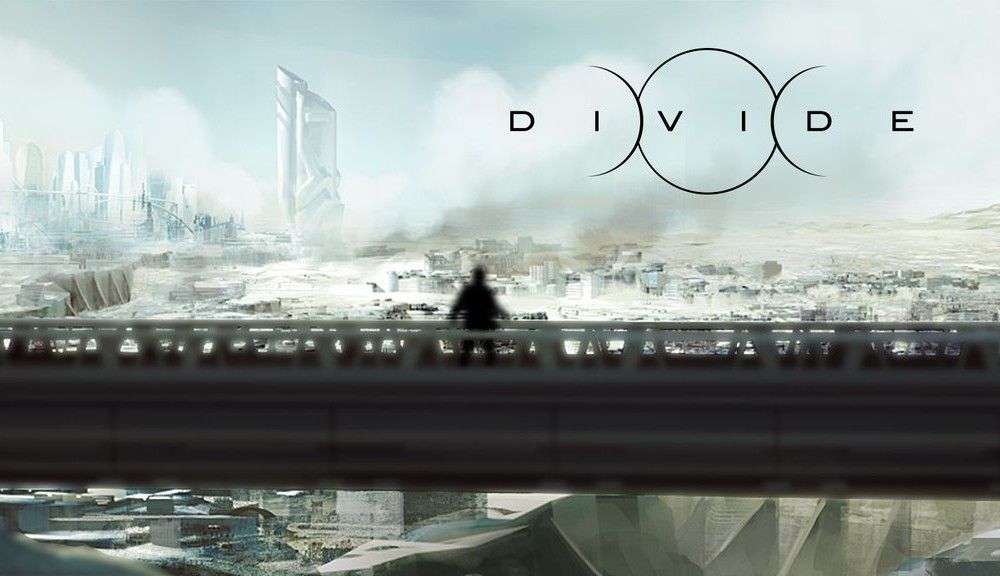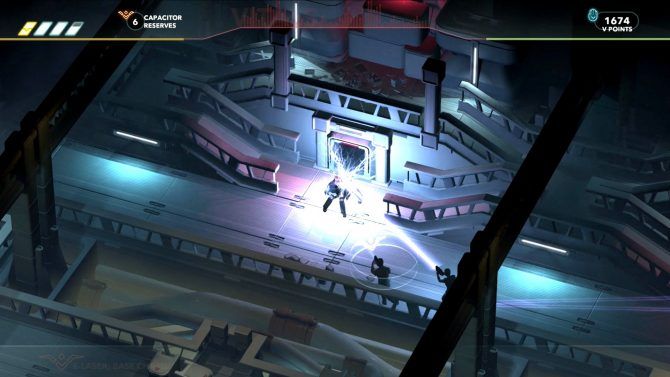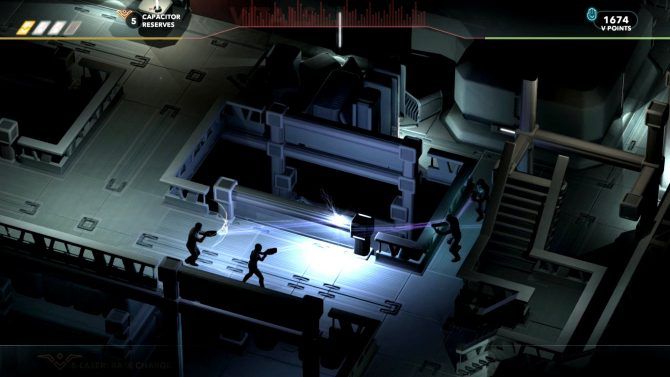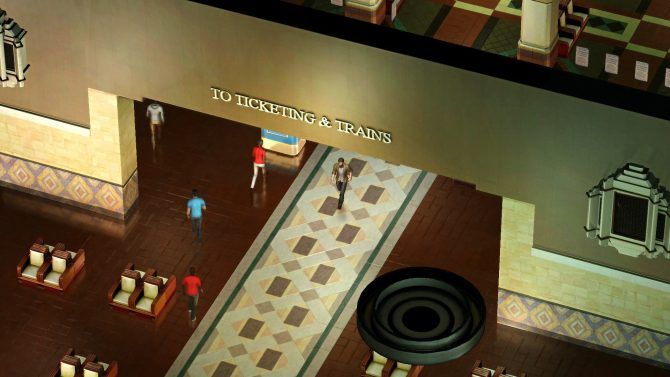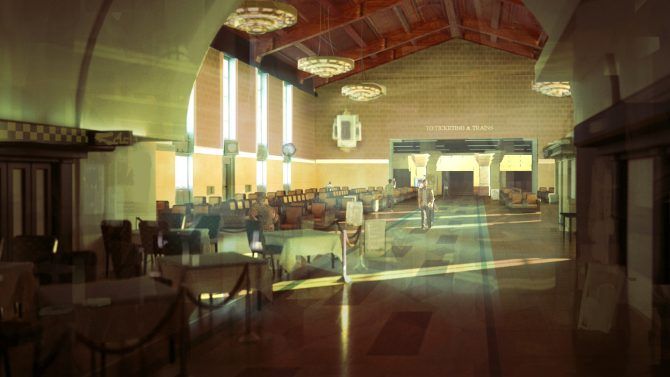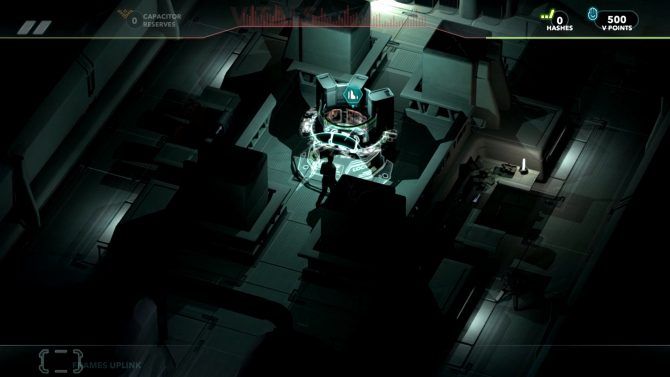The internet is a great thing. At any given moment you are only one google search away from an endless amount of information. Because of this -- as well as the gaming industry's extensive coverage of virtually ever game under the sun, including my own coverage -- it is exceedingly rare a game flies under my radar. Divide was one of these games though.
That's right, until it popped up on the PlayStation Blog -- nearly a month before its release -- I knew nothing about it. Going into this review, this was still the case. And like the old days of going to the local video game store and excitingly picking a new game because of its cover art, I feverishly jumped into Divide all based off one mere, rather irresolute, trailer. If I'm being honest, it was all actually quite exciting, if not a tad nostalgic. However, like many of those times I picked a game on pure whim, Divide only greeted me with a bucket load of disappointment in the face of my naive anticipation.
I knew I was in trouble when my immediate reaction after about 30 seconds was an actual verbal, "oh man." And not the good "oh man" either. The bad one, the one that comes with the feeling that you played yourself. A little further into the game and my first impressions were that the music was superb, the story was decent, and everything else was pretty substandard, if not downright terrible at times. These impressions never changed. The music stayed great, the story stayed decent, and everything else continued to make me yearn for the end.
Divide begins by plopping you into an in-the-future prologue that mostly serves as an introduction to the core of the game's controls. It's a horrible first impression, because it's the game's ill-conceived, unendurable controls that are its most egregious offense. The game is an isometric, top-down twin stick shooter, that heavily leans into exploration reminiscent of old-school adventure games. It's a pitch on paper that sounds right up my alley, in multiple ways. However, in execution, both the exploration and combat, are so frustratingly obtuse that I wanted to indulge in both as little as possible.
You move around via the left stick and aim and look around with the right stick. You interact with objects, make dialogue choices, and do virtually everything else with the right trigger. Why? I'm not sure, because there is nothing done with the right trigger in this case that can't be done with one of the four, more comfortable to use and familiar, buttons.
Just exploring through the game is nettlesome with the offered controls, but when you pile on the combat sequences, it becomes full-blown exasperating. To shoot your weapon, you must aim with the right analog stick, and ready the weapon with L2, and then shoot with R2. Let me repeat that: you have to aim with the fidgety left stick, hold down L2 to raise your weapon, and then shoot with R2. I can feel my body tense up just thinking about, and rightfully so, because I had to use these awkward and unintuitive controls for the near 10 hours it took me to beat the game.
The root of the problem is forcing the player to hold down L2, which is just an added complication that serves no gameplay purpose. Maybe it was a problem unique to me, but constantly I found my finger slipping off L2. It was never a comfortable position to hold the controller, and actually resulted in my fingers and hand cramping up at some points. If the foundation of which the combat is built upon, the action of shooting, is half-baked, it should come as no surprise that the rest of the combat is equally poorly designed, and simply maladroit.
At the start of the game, and for a sizable chunk after, you can't fire more than one shot every 1o-ish seconds. Accuracy in favor of bullet raining is fine, but not when aiming is as loose and unpredictable as it is. Having to dance around an enemy for an additional 10 seconds because the shooting controls are inconsistent is not my idea of fun. When you pair this with enemies that take 2-4 shots to die, you get a very tiresome process that lead to far more sighs than thrills.
With some of the game's robotic foes, you have the option to "hack" them, but due to the proximity requirement, it often wasn't a good option as you would get shot 2-3 times in the process. Rather than using this feature to promote different gameplay mechanics like stealth, and punctilious patience, it nets the same gameplay loop: running around like a headless chicken.
You can find upgrades in the environment that allow for things like quicker recharge rates or more ammo, but this doesn't make killing bots (and eventually some humans) any more fun, it just makes it slightly quicker. As the game goes on you will pick up upgrades or you will buy them from vending machines you reactivate, and in turn you will be granted neat abilities like being able to remotely explode robots, or hack one to fight on your side. However, with the actual mechanics of the gameplay being all so terrible, I never found myself wanting to participate in it, let alone explore it further.
No my preferred strategy was to hold down L1 -- which you use to sprint -- and bolt past as much as I could. And if the gameplay wasn't bad enough to make me want to rush through everything, the poorly designed, run-of-the-mill, monotonous sci-fi environments, sure would have done the job.
Most of the environments in the game are simply dull, and sometimes even look passionless. There's nothing in the grey, classic sci-fi environments that make them feel unique to Divide. You could very easily pick them up and put them into any modern sci-fi game and they would fit just as well.
The repetitiveness of the environments is made worse by all the aimless backtracking you will have to do in the game, whether it's because you missed something, or because you are lost. And boy is it easy to get lost when the maps are poorly designed, there is no effective tool for consistently navigating them, and when everything is the same metallic corridor filled with the same boring looking metallic enemies.
Often it feels there are more corridors in the game that serve no purpose than ones that do. For example, at the start of the game you find yourself in a sprawling train station. In this part, I spent far more time trekking back from a corridor that lead to absolutely nothing or to nowhere, than anything else. Much of the game is just an aimless journey to find where the hell you're going.
It's important to note that when you actually manage to break free of the game's dreary metallic hell, there is actually some great art design to be found. For example, the sequence when you're on a bridge overlooking a highrise of a future Los Angeles, is quite nice, and shows that the game's designers are capable of creating visually appealing environments. But as good as these environment shifts feel, they are equally disheartening to think about when you find yourself backtracking through an environment you've seen dozens of times.
Making the gameplay and environments more swallowable is the game's serviceable story. It's rather commonplace sci-fi, but it's decent enough, with a few twists and turns, that it should keep your attention, alas no farther than when you leave the screen in which you're playing it on, but it's grabbing enough in the moment.
You play as a single father named David, who's taking care of his daughter Arly after an accident to his wife Marian left him a single parent. From the jump, it's clear the circumstances of her death are a bit nebulous, but there are subtle hints that her employer, Vestige, may have been involved.
The story thread picks up when David receives a message from Alton, an old colleague and friend of his wife's, telling him to meet him at a train station. It's here Alton clears some of the haziness shrouding Marian's death, and reveals information that the "accident" was perhaps not so much accident, but the result of an insidious cover up going on. Before Alton departs, he hands David a mysterious suitcase, which is said to hold the key to unraveling the mystery of Marian's death.
What the suitcase reveals is that David's wife and her employer Vestige were working on some type of contact lens technology that enabled the wearer to see HUD displays, and interact with certain things that would have otherwise not been visible or available. Shortly after the discovery of these lenses David blackouts and wakes up in the future. From here, you, with the help of Eris (your NPC companion shortly into the game) you must figure out what happened, all while trying to piece together your wife's death and find your way home back to your daughter.
As mentioned above, the story you experience in Divide is one of its stronger points. However, it is considerably weighed down by low-budget, at times horrible, voice acting. Specifically, the main character David, is very poorly voiced. Every single male-voiced character I encountered did more a serviceable job than David's voice actor, who simply didn't have the range to voice the character through such a mature story. All of the voice acting was simply bad and cringeworthy, and reminded me of student project voiceover work.
Perhaps elevated due to being surrounded by mediocrity, the game's music was one thing that really stuck out to me as exceptional. Where everything else fails to create emotion and atmosphere, the music does not. Despite being poorly implemented at times, and not implemented enough at others, the orchestral music from Chris Tilton (known for his work on Assassin's Creed: Unity) smothers the game's dark and stodgy corridors with a baleful moodiness, and gives Divide a smidgen of identity it would otherwise not have.
Divide has the potential to be a decent game, but it's over ambitiousness in the face of its low-budget ultimately nets a forgettable, half-baked sci-fi game. If Exploding Tuba Studios dumped the twin stick gameplay, and instead fully-embraced the adventure genre, I would be interested in seeing it take another stab with a new game. But more Divide? No thanks.

